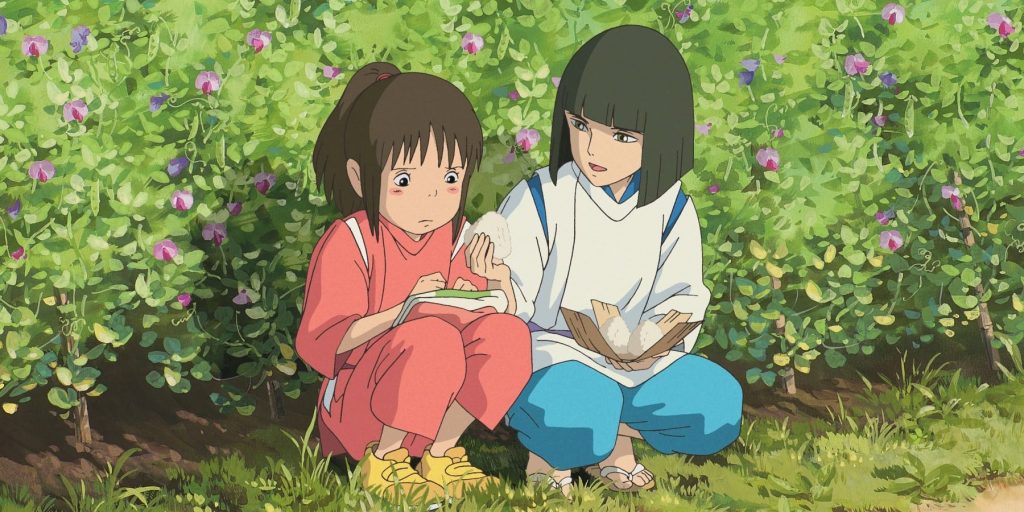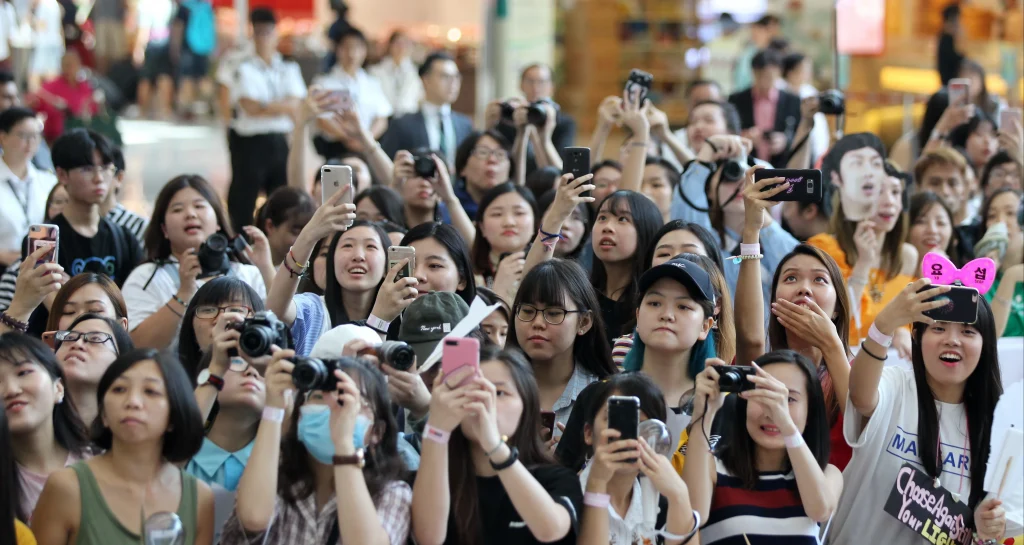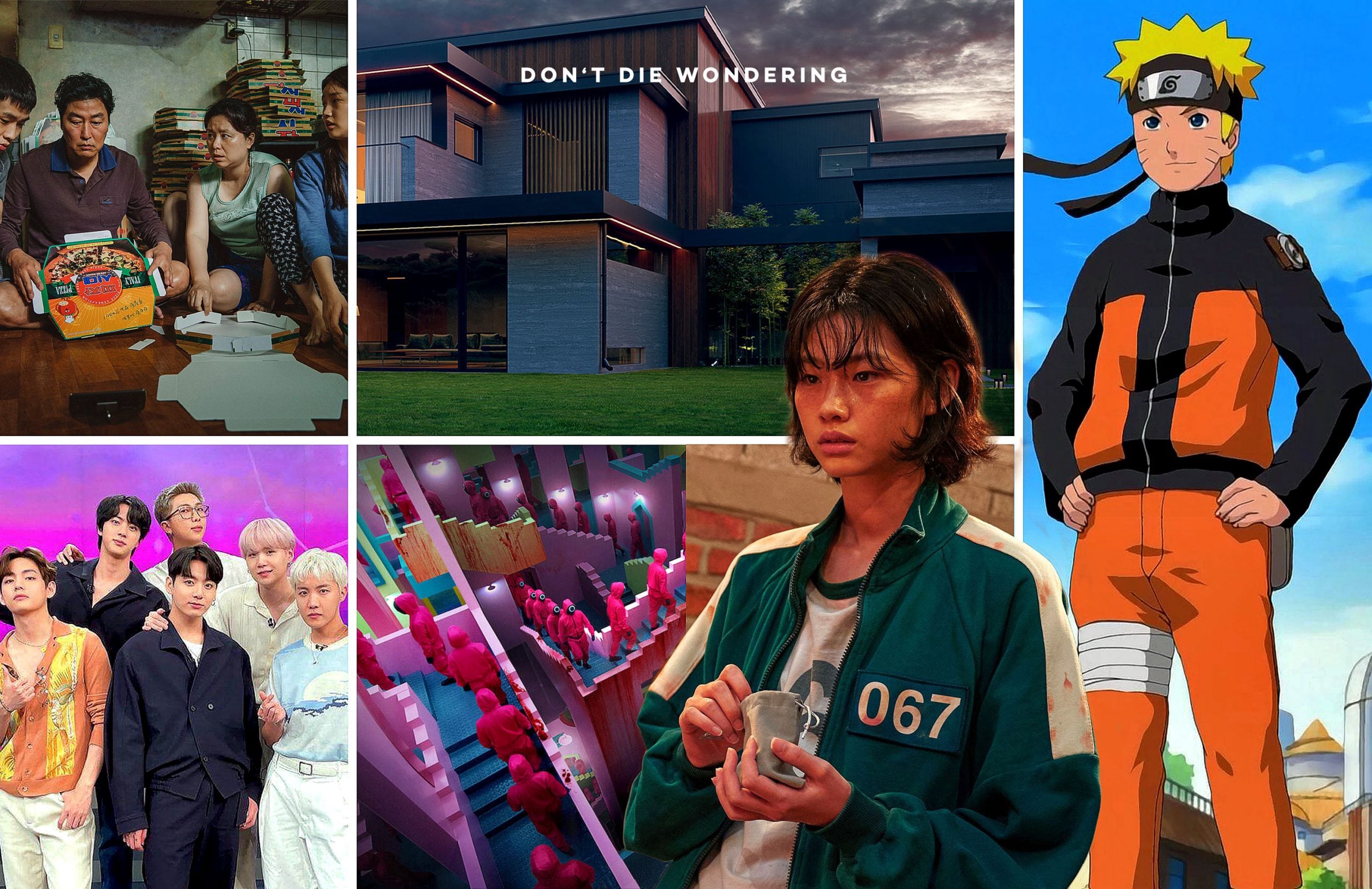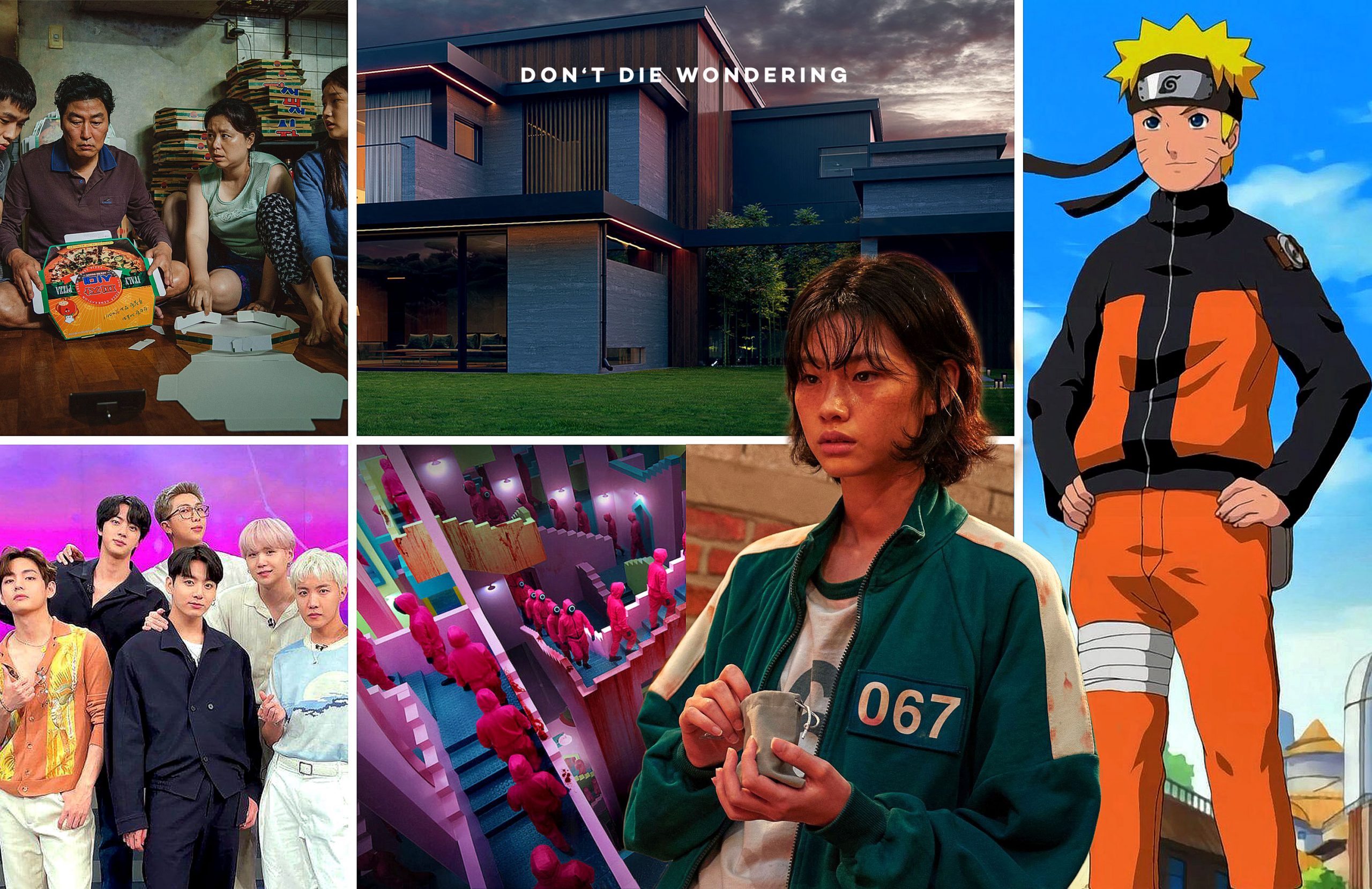THE enormous influence of Korean and Japanese popular culture in the West last year was palpable. 2021 saw the likes of BTS and Squid Game reach unparalleled levels of global fame, while Parasite won big at the 92nd Academy Awards the year before, becoming the first subtitled film to win Best Picture.
East Asian popular culture, from Korea and Japan, in particular, has become an unstoppable juggernaut when it comes to driving global trends and is creating vast wealth in the process. We are witnessing a major shift in the international cultural zeitgeist – but how did we get here?
The dawn of a new era
In the early 1990s, Hong Kong cinema was enjoying its heyday in the West. Stars like Jackie Chan and Bruce Lee were dazzling audiences with their martial arts, and Japanese anime shows like Pokémon, Digimon and Yu-Gi-Oh! were also growing in popularity amongst millennial school children around the turn of the century.
This fascination with Asian entertainment would only grow exponentially from here. Studio Ghibli films like Howl’s Moving Castle and Spirited Away were big hits in the West and have retained a cult status, while K-dramas and K-pop grew in international recognition throughout the 2000s. The Korean Wave, or Hallyu as it has been coined, had truly begun.

2012 marked a turning point when Psy’s Gangnam Style broke records by becoming the first YouTube video to reach 1 billion views. The dance craze swept through Western social media platforms and signalled the arrival of Hallyu at the very top of international trendsetting.
Over the last decade, we’ve also seen the explosion of Korean cinema – Snowpiercer, Train To Busan, Old Boy, The Host, and of course Parasite are all highly regarded in the West. Meanwhile, K-pop group BTS were the third-most streamed artist on Spotify in 2021 and earn an estimated $3.6 billion for South Korea’s economy every year.
How did we get here?
This seismic shift in global taste can be put down to a few things. Globalisation has made the world a much smaller place and social media has completely transformed the international currents of pop culture, making it far easier for Western audiences to access anime, K-pop, and K-dramas.
Susanna Lim, a professor of Asian studies at the University of Oregon, told CNN that Western fans are also requiring greater diversity than they have done previously. She said: “The growing interest in East Asian pop culture reflects these changing demographics and cultural awareness in the US and the West,” and that K-pop is “packed full of Western influences,” so it can simultaneously feel familiar and unfamiliar to Western audiences.
Governments have also played a large role in the export of K-pop and J-pop after realising their populations alone were not big enough to sustain the growth of the industry.
K-pop and J-pop have become influential tools of soft power, earning huge sums through sponsorships, record sales, streaming and more, but also by becoming a major draw for tourism in their respective countries. According to Korean think tank Hyundai Research Institute, K-pop group BTS helped inspire an estimated one in 13 tourists that visited the country in 2017.
K-pop’s influence in the West is also buoyed by a huge following in Indonesia, Thailand, Vietnam, and the Philippines, making it a truly global phenomenon and signalling that its impact on popular culture is unlikely to wane any time soon.

Whatever your opinion on the music may be, the West’s relatively recent fascination with culturally diverse popular entertainment is a positive step forward for the international community. It harks towards a growing notion of integration and inclusivity, and perhaps a better understanding and appreciation of otherness, where cultural phenomenon from the other side of the world can have such an enormous impact on Western society.
Despite influencing Korea and Japan in many ways through its cultural entertainment, China has yet to significantly contribute to international popular culture in the same way as its neighbours have. But this is not to say it doesn’t have anything to offer. In 2021, the value of China’s entertainment and media market was reportedly estimated to be at about $359 billion dollars. And this is largely just from domestic audiences.
Could we see C-pop explode onto the international pop culture scene in the not-too-distant future? Don’t rule it out.
11/01/2022 update:
Squid Game’s O Yeong-su made history this week after becoming the first Korean actor to win a Golden Globe at the 2022 awards.
The 77-year-old South Korean star played the mysterious Oh II-nam, also known as Player 001, in the hugely popular Netflix series. He beat the likes of Billy Crudup and Mark Duplass of The Morning Show, Kieran Culkin of Succession and Brett Goldstein of Ted Lasso, to take home the Best Supporting Actor in Television award.
His triumph is a huge personal success for O, but it’s is also a ground-breaking victory for South Korean television as Squid Game is the first Korean TV drama to be nominated and go on to win a Golden Globe – further proof of the growing East Asian representation at the pinnacle of popular Western culture.


